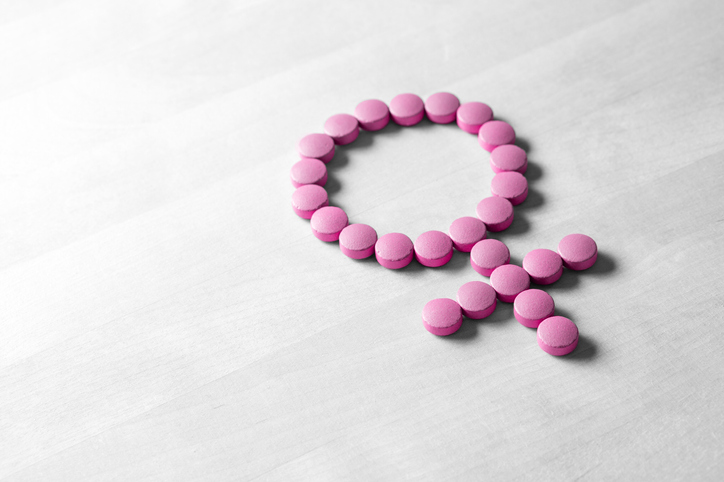Breast Cancer and Menopause – What Are The Risks?
Certain factors increase the risk of developing breast cancer and menopause may not be one of them, so what is?

Menopause itself is not associated with an increased risk of developing cancer but the rates of many cancers, including breast cancer, do increase with age.
What are the risk factors?
Certain factors do increase the risk of developing breast cancer, but even having many risk factors does not mean you will develop breast cancer. Unfortunately the reverse is also true as having no risk factors does not mean you will not develop the disease.
Age is the single-most important risk factor for breast cancer as your chances of developing the disease increase as you get older. About 60% of women diagnosed with breast cancer. in the UK each year are 45 or older with 43% being 65 or above.
Personal risk is also greater if an immediate family member (mother, sister, or daughter) has had breast cancer, particularly if it was at an early age.
Also, women who have had a breast biopsy (removal of breast tissue) that shows certain types of benign disease, such as atypical hyperplasia, are more likely to get breast cancer.
Other factors are not the the primary ones but include:
- Having cancer in one breast (may recur or develop in other)
- Having a history of ovarian, uterine, or colon cancer
- Having a genetic abnormality such as a BRCA1 or BRCA2 gene mutation
- Late menopause (after age 55)
- Starting menstruation early in life (before age 12)
- Having a first child after age 30
- Never having children
- Being overweight or obese after menopause
Signs of breast cancer
Remember there may be no signs, so stay alert and when doing your monthly breast exam see if you notice a lump, a change in breast shape, any dimpling of the skin, fluid coming from the nipple, a newly inverted nipple, or a red or scaly patch of skin.
Don’t wait, always report these to your doctor immediately.
Does HRT increase the risk?
Evidence suggests that the longer women are exposed to unbalanced female hormones the more likely they are to develop breast cancer. Bioidentical doctors have long argued that unopposed oestrogen carries risk but when in natural balance with progesterone, as the body intends, then its protective effect may help reduce that risk.
The longer women are on HRT with a combination of oestrogen alone or with a progestin (the synthetic form of progesterone), the greater their chances may be of being diagnosed with breast cancer.
Medical opinion in the USA says it is unclear if HRT with oestrogen alone, which is sometimes prescribed for women that have had a hysterectomy, increases the risk of breast cancer, but again bioidentical doctors would say that unopposed oestrogen clearly demonstrates an increased cancer risk.
How to reduce your risk
While there is no definitive way to prevent breast cancer, there are definitely steps you can take to reduce your risk – and you already know most of them.
So it is about maintaining a healthy weight, being physically active and getting at least 30 minutes of moderate to vigorous exercise five or more days per week.
Plus the usual healthy diet with at least five servings of fruit and vegetables daily and limiting the amount of sugar, saturated fat, alcohol, processed meat and red meat – in other words if you are following the Mediterranean diet or similar you have got it covered.
Helpful information:
Being proactive is very important as the survival rate from breast cancer increases when it is detected and treated early. Detection of breast cancer in its early stages — hopefully before it moves outside the breast — can significantly improve the chances that treatment will be successful.
If you are called for a breast screening, don’t ignore it, and certainly do not ignore any changes in your breast, but report them immediately to your doctor.
Bioidentical progesterone helps in balancing the excess oestrogen that is linked to breast and other hormonal cancers and this article will be helpful.
Can Bioidentical Progesterone Reduce Breast Cancer Risk?


















